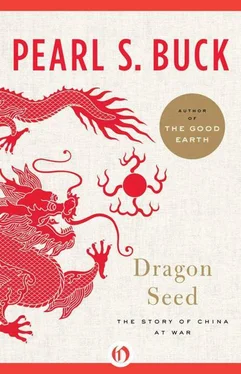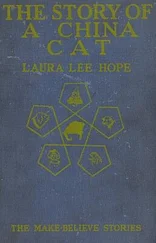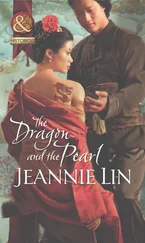There came such a time in the late summer of that year and it was the darkest that Ling Tan had yet had, and it began on his birthday. In the old days Ling Tan’s birthday was a holiday for all the village, and he invited his friends and gave a great feast. Year after year he had looked forward to this his sixtieth birthday, for the sixtieth is the best birthday a man can have, if he is a good man and if he has sons. Had the times been right, his sons would have gathered around him and there would have been days of rejoicing. He would have had new garments and there would have been many gifts given to him, and he would have given money to all his house and all would have been gaiety and good cheer.
But how could such a thing be now? His third son was far in the free land, and his eldest son in and out of the hills. Ling Tan saw his birthday coming near and they had not even so much as a piece of meat in the house and no money wherewith to buy it. All they had must be saved for the meager food that kept them living. Besides this, the summer had been long and hot, and now near the end of it Ling Tan felt weary and old and his life was too much for him.
“I do not take joy even in my land,” he thought one day as he went out to see the rice and how thick it stood for harvest. “If the harvest is good it is a trouble to me, because it goes to feed the enemy. If it is scanty then I feel the land is angry somehow and I have not done well by it. A man can take no pleasure in anything so long as this wicked enemy crouches upon us like an evil beast.”
He wondered, for the first time, if it were well that he had chosen to remain on the land, because he had to feed the enemy year after year, and this was a very bitter thing.
“If there were a little hope somewhere in the sky,” he told his second son one day. “If we saw hope as large as a man’s hand even, raised to help us, but there is none who will help us. Everywhere in the world men think only of themselves.”
For by now even such men as he knew that none of the countries in the world had come forward to stand at their side or to give them aid in this desperate war, and he and all his fellows had heard that even in countries which called themselves friendly, men sold weapons and goods of war to the enemy for the price that they could get, and he and others like him were sore at heart because righteousness was not to be found any more among men. Each in his own way was like the other, and though some men did not make war as others did, if they sold their goods for profit to the war-makers, did it make them better because the weapon was not in their own hands, if they had made the weapon and sold it and so put it into the hands of those who used it upon the innocent? Well Ling Tan knew all this, and he was weary of waiting for help. There was no help, and slowly hope went out of him, as the fifth year of war wore on toward autumn.
“All men are evil,” he told his son. “There is none under Heaven who think any more of right and wrong. When this comes about we perish.”
And he began to lose his wish for food and he worked less than he did and he had none of the old pleasure in harvest and planting that had kept him alive and young for his years.
This went on until Ling Sao grew frightened, for he was still more to her than all else besides, and she called her second son into the kitchen one day and she said, “You must think of some way to put hope into your father, for he is a man who has never before in his life given up hope.”
“You ask a very hard thing, mother,” Lao Er said sadly. “Where shall I find hope for us today? Can I buy it somewhere or find it lying on the ground to pick up like a jewel dropped? Hope must come out of what we have, or it is not hope, but a dream.”
“Then your father’s life is over,” Ling Sao said weeping. “And our long battle is lost. Now the enemy conquers us.” And she went away into her own room and closed the door and wept.
Lao Er took this very gravely and he set himself to find out if he could if there were anything good he could tell his father, but where could he find good?
Even in these times of evil men, Heaven could be evil, too. There had been the rains one year to spoil the land, and now the year just past was heaped with misery, for there was famine in the North once more and starving people drifted southward, from misery to misery. In other years they had so drifted, and Ling Tan and others had helped them, but what help was there now, with half the villages destroyed by fire?
In the city that puppet sat on his seat, and sent out his little orders, and from abroad those nations which favored the enemy called him ruler. In the free land, it was true, they heard of a mighty army gathering, and yet they never saw this army and it remained only hearsay to these who lived here in bondage. For the enemy saw to it that no news came to them and the people still lived locked in silence from the outer world. Within this silence the grim enemy ruled, and still for nothing a man could be killed. Many were being killed even now, for some small fault or for none at all except an enemy’s whim, and none could draw his breath with freedom. Slowly everywhere the hearts of men were being crushed, and many died from within and gave themselves up as one who drowns must first be willing to drown and cease his struggle to live before he can die. Many who had not been willing to smoke opium, now did turn to it.
Then searching everywhere in himself Lao Er thought of his old cousin whom in many months he had forgotten. He knew him to be alive, for now and again mouth to ear in spite of the enemy there would creep through the countryside some small piece of news, twisted and changed in the telling so that none knew by the time it reached the villages, what it had been in the beginning. And Lao Er thought, “I will go to that old bone, and see if he has any good to tell,” and then he thought, “and I will ask my father to go with me, and if there should be something good he will hear it, too, and he will know I am not saying empty words for comfort.”
So when Ling Tan’s birthday came, and there was no feast beyond a fish caught secretly and hidden until the meal, when they had eaten it behind the locked gate, Lao Er said to his Father, “Why should we not take a few hours for pleasure tonight and go into the city to that tea house and see our old cousin and hear again what he says?”
At first Ling Tan thought he would not go because he was weary and he despaired of hearing good, but he saw his son was urgent. So he changed the words he had been about to speak and he said:
“Though I have no zest for it, if it is what you want and since this is my birthday, I will go with you.”
Thus it came about that once more Ling Tan and his son hid themselves among the others in the tea house. All went as it had before, and they went into the inner room. There after a while the old cousin came, thinner and more dried and drowsier than ever, and now if Ling Tan would have told him who he was that old opium eater could not have known him through the dimness of his dreams. But still he was clear enough for this one thing that he did every day because his opium depended on it, though anyone could see he would not live much longer to need it.
When the old man came in he sat down on his stool, and he spoke into his beard and in so low a voice that all must strain to hear him, and he said:
“I told you yesterday about that meeting between the two great white men, and it took place upon the sea. The one white man came from the country of Mei and the other from Ying, and they met together for a space. Today the one from Ying has spoken.”
The old man fumbled in his bosom and brought out a small piece of brown-stained paper, and then his horn spectacles. With much trouble he put his spectacles on his nose and they fell off because his hands trembled so and he put them on again and again they fell off, and all waited in great patience until a third time he tried and this time they stayed. Then he lifted up the paper and read these words aloud:
Читать дальше












